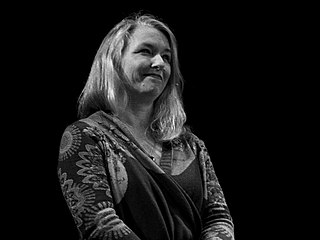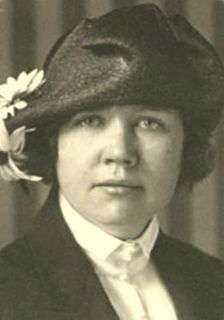A Quote by Drew Gilpin Faust
I lived in a world where social arrangements were taken for granted and assumed to be timeless. A child's obligation was to learn these usages, not to question them. The complexities of racial deportment were of a piece with learning manners and etiquette more generally.
Related Quotes
Manners are made up of trivialities of deportment which can be easily learned if one does not happen to know them; manner is personality - the outward manifestation of one's innate character and attitude toward life.... Etiquette must, if it is to be of more than trifling use, include ethics as well as manners. Certainly what one is, is of far greater importance than what one appears to be.
To sacrifice the principles of manners, which require compassion and respect, and bat people over the head with their ignorance of etiquette rules they cannot be expected to know is both bad manners and poor etiquette. That social climbers and twits have misused etiquette throughout history should not be used as an argument for doing away with it.
When I did some research on child marriage, I realized there were no photographs that showed what it looked like. But the more you dig into something complex, the more you realize how much there is to learn. That's why I've taken so many years to unravel the complexities of the issue and how it continues to be similar and different in different countries and communities.
The most fundamental challenge of the anthropocene concerns agency. For those who lived the Enlightenment dream (always a minority but an influential one), agency was taken for granted. There were existential threats to agency (e.g., determinism) but philosophy mobilized to refute these threats (e.g., by defending libertarianism) or to defuse them (e.g., by showing that they were compatible with agency).
Etiquette is about all of human social behavior. Behavior is regulated by law when etiquette breaks down or when the stakes are high - violations of life, limb, property and so on. Barring that, etiquette is a little social contract we make that we will restrain some of our more provocative impulses in return for living more or less harmoniously in a community.
These were always obsessions of mine, even as a very young child. These were things that interested me as the years went on. My friends were more preoccupied with social issues - issues such as abortion, racial discrimination, and Communism - and those issues just never caught my interest. Of course they mattered to me as a citizen to some degree...but they never really caught my attention artistically.
Like winds and sunsets, wild things were taken for granted until progress began to do away with them. Now we face the question whether a still higher 'standard of living' is worth its cost in things natural, wild and free. For us of the minority, the opportunity to see geese is more important than television.
Life is a thin narrowness of taken-for-granted, a plank over a canyon in a fog. There is something under our feet, the taken-for-granted. A table is a table, food is food, we are we - because we don't question these things. And science is the enemy because it is the questioner. Faith saves our souls alive by giving us a universe of the taken-for-granted.






































